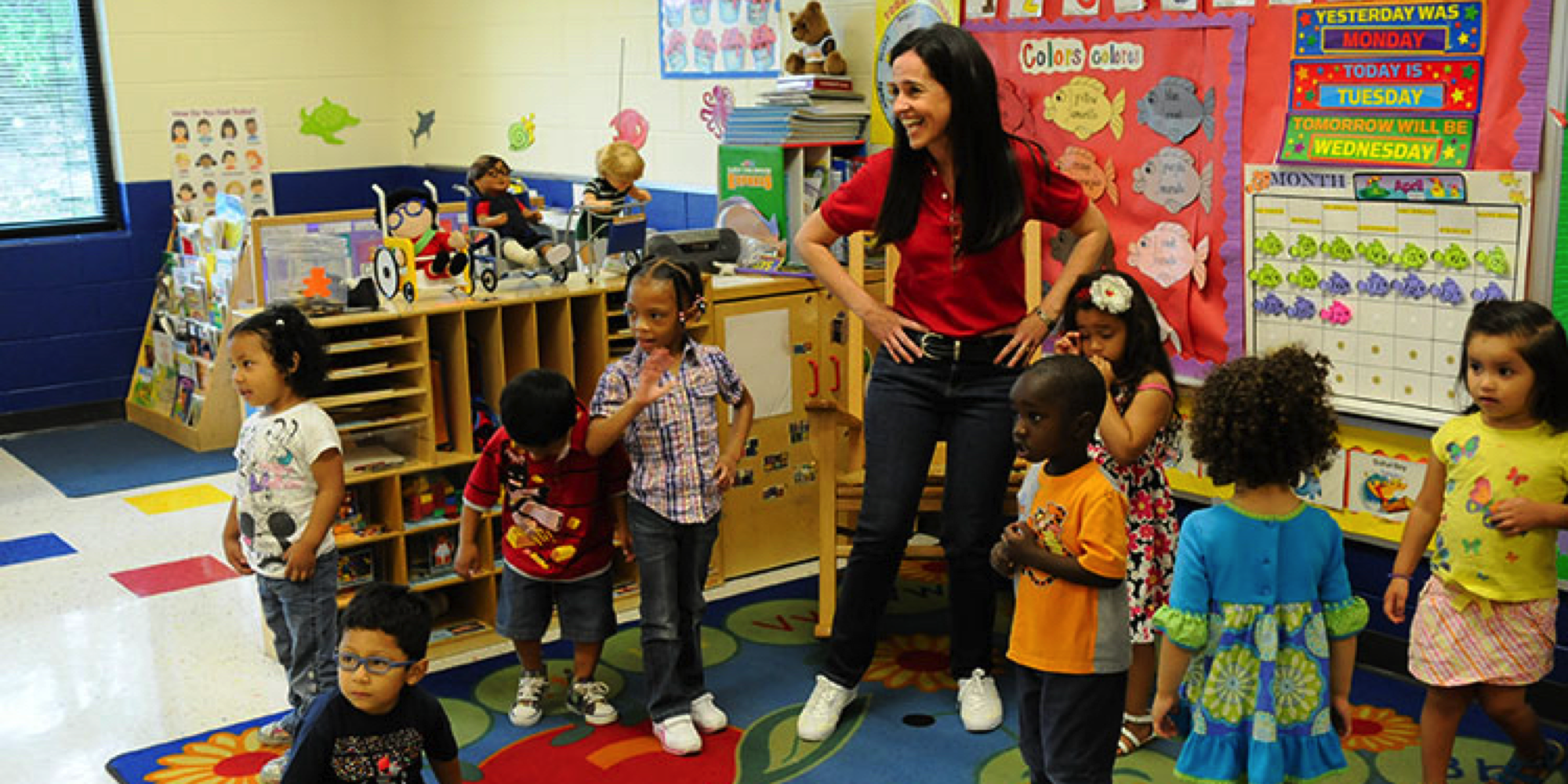Rain, J. S. (2014). Loving Guidance, LLC. Final report: Conscious Discipline Research Study.
Intro brief: This study examined the impact of Conscious Discipline on social-emotional behaviors in early childhood programs in three states. Data was collected using four separate tools and a school readiness assessment. Those receiving Conscious Discipline training experienced an increase in positive results in all areas when compared to an untrained comparison group. These areas include use of social-emotional learning skills, school climate, school readiness and pro-social behavior.
Type of report: Quasi-experimental
Summary:
Study Design
This study examined the impact of Conscious Discipline on the social-emotional skill behaviors of teachers and children. Participants from early childhood programs in Florida, Texas and Kansas were recruited based on their level of training and experience with Conscious Discipline.
The experimental Conscious Discipline group consisted of 38 pre-K teachers who reported receiving an average of 35 hours of prior training on Conscious Discipline. The comparison group consisted of 28 pre-K teachers who reported receiving an average of less than an hour of prior training on Conscious Discipline.
For both groups, data was collected using four tools:
- Observations assessing teachers’ use of positive discipline, classroom management, positive emotional climate, structures, rituals, routines, classroom social-emotional behavior and teachers’ social-emotional personal development.
- A 55-item Parent Survey assessing the parent’s social skill behaviors, social-emotional skills, their child’s attachment with the school, the organizational climate of the school, the frequency of contact between parent and teacher, and relational support.
- A 106-item Educator Survey to assess teaching style, structures, rituals, routines, social-emotional personal development, perception of students who exhibit social competence and social-emotional learning skills, organizational climate, relational support, school connectedness, collaboration and decision making among teachers, sense of belonging/friendships at school, and parent involvement.
- An Implementation Log (completed by the experimental group only) that looked at teachers’ level of emphasis on the seven core skills of Conscious Discipline and was completed every two weeks.
Children’s school readiness was measured using the Frogstreet Assessment (Houghton Mifflin Harcourt, 2010), which covers 11 aspects of Language and Literacy, 12 aspects of Mathematics, and eight other domains including social-emotional skills.
Results
At the start of the study (i.e. baseline), no significant differences were found between the experimental group and the comparison group on the Educator Survey. On the Observation Checklist, however, the experimental group showed significantly higher levels of structures, rituals, routines and social-emotional development exhibited by teachers than did the comparison group. This is expected, given that these teachers had prior training in Conscious Discipline.
The following results were observed:
- The Conscious Discipline group teachers increased their use of social-emotional learning (SEL) structures over the course of the study at a significantly higher rate than teachers in the comparison group, who declined slightly over the course of the school year.
- The Conscious Discipline group teachers significantly increased their use of SEL skills, whereas the comparison group remained unchanged.
- School-wide implementation of Conscious Discipline was associated with significantly higher organizational support and relational support climate ratings.
- Teachers in the Conscious Discipline group reported perceptions of a more positive emotional climate in classrooms than did teachers in the comparison group. This finding was mirrored in the Observations. Observations also revealed that even after taking into account that Conscious Discipline classrooms started higher on positive behavior management, at post-test the Conscious Discipline group teachers more frequently used positive behavior management strategies than teachers in the comparison group.
- School readiness scores increased significantly at post-test for both groups, as is expected as the school year advances. However, scores for children in the Conscious Discipline group improved more than the comparison group, with an increase of 52 points for the Conscious Discipline group and an increase of 45 points for the comparison group.
- Parent and teacher reports of children’s pro-social behavior improved over the year for both groups. However, the pro-social behaviors children in the Conscious Discipline group improved more than those in the comparison group. For example, based on a 7-point scale, mean ratings for teacher’s reports of children’s social emotional skills in the Conscious Discipline group increased from 4.9 to 6.4 (increase of 1.5 points), and in the comparison group from 5.42 to 5.6 (increase of 0.18 points). For parent ratings of children’s social emotional skills, the Conscious Discipline group increased from 2.92 to 3.09 (increase of 0.17 points), and in the comparison group from 2.90 to 2.95 (increase of 0.05 points).
Helpful Links
- Webinars: How Conscious Discipline Aligns with National Head Start Standards on Parent Education
- Knox County Head Start, Inc. 2016
- Head Start Conscious Discipline Alignment
- Conscious Discipline Improves SEL, School Climate, Readiness and Pro-Social Behavior
- Conscious Discipline Meets with Head Start Leadership
- Episode 001: Knox County Head Start is Building Bright Futures for Young Children AND Their Families
- A Conscious Approach to Self-Regulation: Knox County Head Start and the Conscious Discipline Program




